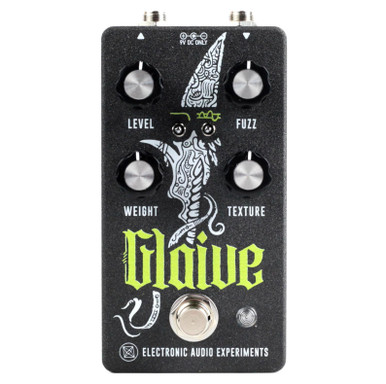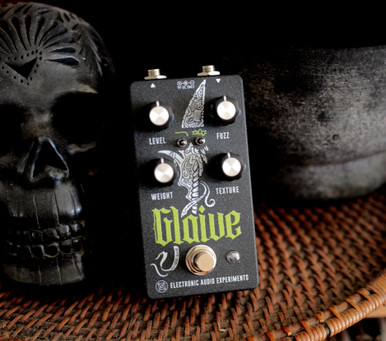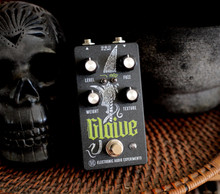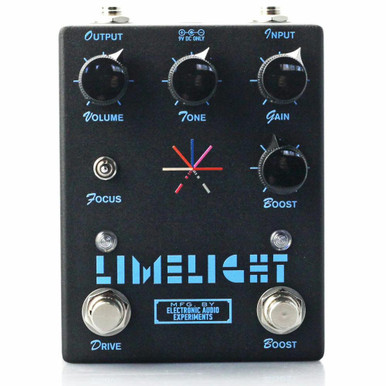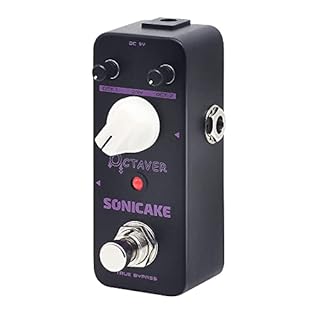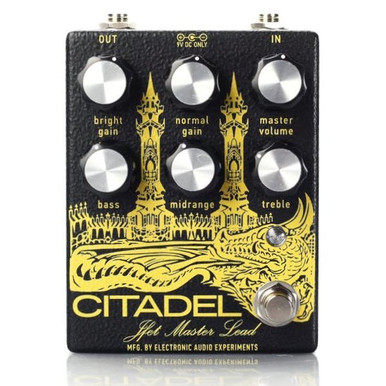Description
On the menu for January 2026 are the Electronic Audio Experiments Guitar Pedals, freshly added and carefully selected. These New units are available to order online with fast, secure delivery from trusted UK retailers. Read on for full details, specifications, demos, videos, reviews, and the best places to buy the Electronic Audio Experiments Guitar Pedals today.
The Electronic Audio Experiments Glaive is the most dangerous gain device in our lineup. This discordant yet deceptively versatile op amp fuzz is capable of over +80dB of gain. The Weight knob adjusts a lightly resonant high pass filter at the input, for tones ranging from tight, ripped- speaker grind to bass-rich sludge. Texture blends in a full-wave rectified analogue signal, producing an octave up that gets fed into the fuzz input. Use it for subtle scrambling, or to generate piercing intermodulation products and sub-bass artefacts with a synthesiser-like attack. The LPF toggle can focus harsh overtones or unleash a full-spectrum cut through any mix. Finally, the Squelch toggle enables a brute-force, highly effective bias gate that can temper even the most fanatical gain levels and impart a crumbly, ripping quality to the note decay.
The whole package is rounded out with a robust, high-headroom 24V internal power supply and quiet buffered bypass with intelligent momentary/latching functionality. Indeed, despite its belligerent nature, the Glaive possesses a deadly finesse.
Controls:
- Level: Output volume level.
- Fuzz: Controls the signal flow into the primary gain stage. Increase to add gain, up to an irresponsible +80dB.
- Weight: Changes the cutoff of a high-pass filter at the input to alter the attack and thickness of the fuzz. Decrease for a tight attack, increase for crushing bass frequencies.
- Texture: Turn clockwise to blend in an analogue octave up at the input of the fuzz circuit. Low settings add subtly broken harmonics, high settings add a strong 2nd harmonic with extended overtones and sub-bass artefacts.
- LPF (left toggle): 3-position tone switch. Centre = no high cut, down = moderate high cut, up = strong high cut.
- Squelch (right toggle): 3-position controlling bias/gate behaviour. Centre = off, down = mild gating, up = strong gating.
- Footswitch: Activates the effect with intelligent momentary/latching behaviour.
Specifications
- Bypass switching: Silent electronic switching with a high-headroom op amp buffer
- Input impedance @ 1Khz: 1MΩ
- Output impedance @ 1Khz: <1KΩ
- Power: 9VDC, 2.1mm centre negative barrel. The current draw is 70mA.
We recommend a regulated, isolated power supply rated for 100 mA minimum. The DC input is protected against reverse polarity and over-voltage up to 20V. Our pedals do not accept batteries.
